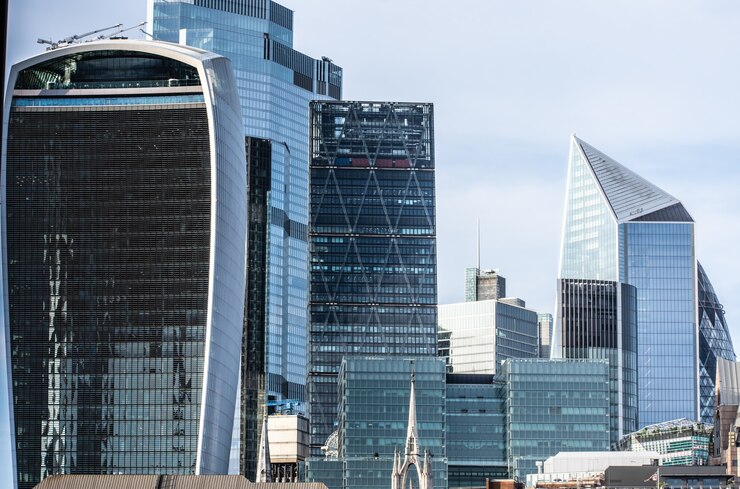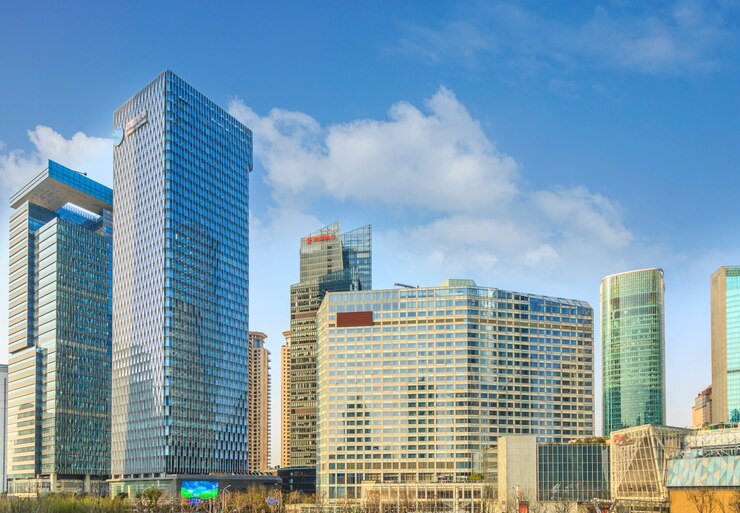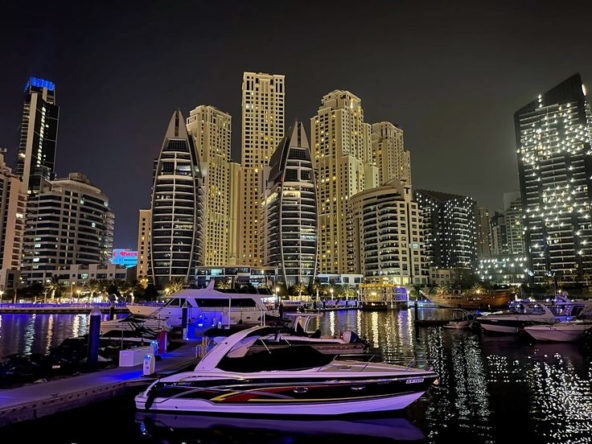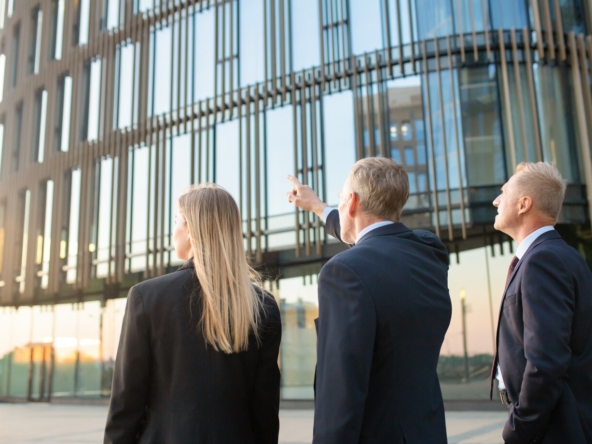15 Essential Q&As: Dubai Commercial Real Estate
Dubai, one of the most prominent cities in the United Arab Emirates, is a major destination for real estate investment worldwide. Commercial real estate in Dubai occupies a special place in this dynamic market, attracting both local and international investors. In this article, we will explore the world of commercial real estate in Dubai, highlighting its most important aspects, before addressing the common questions asked by investors interested in this sector
dubai commercial real estate
Dubai commercial real estate is a dynamic and thriving sector, offering numerous opportunities for investors and businesses alike. With its strategic location, world-class infrastructure, and robust economy, Dubai has become a global hub for commerce and innovation. This vibrant market is characterized by a diverse range of properties, from state-of-the-art office spaces to luxurious retail outlets, catering to various business needs. Whether you’re looking to invest or expand your enterprise, Dubai’s commercial real estate landscape promises growth and success, making it an attractive destination for savvy investors.
15 Essential Q&As: Dubai Commercial Real Estate
The Concept of Commercial Real Estate in Dubai:
Commercial real estate is the property designated for commercial and business activities, including offices, shops, shopping malls, warehouses, and hotels. In Dubai, the commercial real estate market is characterized by its diversity and vitality, as it provides various investment opportunities that suit different needs and budgets.
Importance of Commercial Real Estate in Dubai’s Economy:
Commercial real estate plays a pivotal role in Dubai’s economic growth, contributing to:
1. Attracting foreign direct investment
2. Providing job opportunities in multiple sectors
3. Supporting other sectors such as tourism and retail
4. Strengthening Dubai’s position as a global business hub
Main areas for commercial real estate in Dubai:
1. Dubai International Financial Centre: Home to major financial and legal firms
2. Downtown Dubai: Home to Burj Khalifa and Dubai Mall
3. Dubai Marina: A vibrant area that combines residential and commercial properties
4. Jebel Ali: A major industrial and commercial area
5. Deira: The traditional commercial heart of Dubai
Types of commercial real estate in Dubai:
1. Offices: Ranging from small spaces to high-rise towers
2. Shops: In shopping malls and main streets
3. Commercial centers: Such as Dubai Mall and Mall of the Emirates
4. Warehouses: Especially in industrial areas and free zones
5. Hotels: From budget hotels to luxury hotels
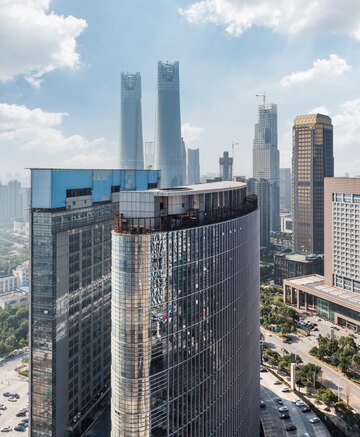
Factors affecting the Dubai commercial real estate market:
1. Economic growth: directly affects the demand for commercial real estate
2. Government policies: such as foreign investment laws and taxes
3. Mega projects: such as Expo 2020 Dubai and its impact on the market
4. Technology: changing requirements for office and commercial space
5. Tourism: significantly impacts the hospitality and retail sectors
Dubai commercial real estate price development:
The Dubai real estate market, including commercial real estate, has witnessed fluctuations over the years. According to Dubai real estate price indices, the market has gone through periods of rapid growth followed by periods of correction. The price per square meter in Dubai depends on several factors including location, property type, and construction quality.
Challenges of investing in commercial real estate in Dubai:
1. Market fluctuations: can affect returns and market value
2. Competition: increased supply in some sectors
3. Regulatory changes: may affect investment and leasing operations
4. Operating costs: can be high in some areas
Future opportunities in the commercial real estate market in Dubai:
1. Expansion in the technology and innovation sector
2. Growth in the logistics and e-commerce sector
3. Development of environmentally friendly and sustainable projects
4. Opportunities in the healthcare and education sector
Compared to commercial real estate in other emirates:
Dubai has a more mature and diverse real estate market compared to most other emirates. However, emirates such as Abu Dhabi and Sharjah are witnessing growth in the commercial real estate sector, providing alternative investment opportunities.
Tips for investors in commercial real estate in Dubai:
1. Conduct a comprehensive market study before investing
2. Hire local real estate and legal experts
3. Understand the regulations and laws related to foreign investment
4. Study future development plans for different areas
5. Diversify your real estate portfolio to reduce risks
The commercial real estate market in Dubai is an attractive investment opportunity for investors looking for lucrative returns in a dynamic and evolving market. Taking into account the challenges and opportunities available, prudent investors can achieve great success in this sector. In the following sections, we will answer 20 common questions investors ask about commercial real estate in Dubai, providing you with a comprehensive guide to help you make informed investment decisions.
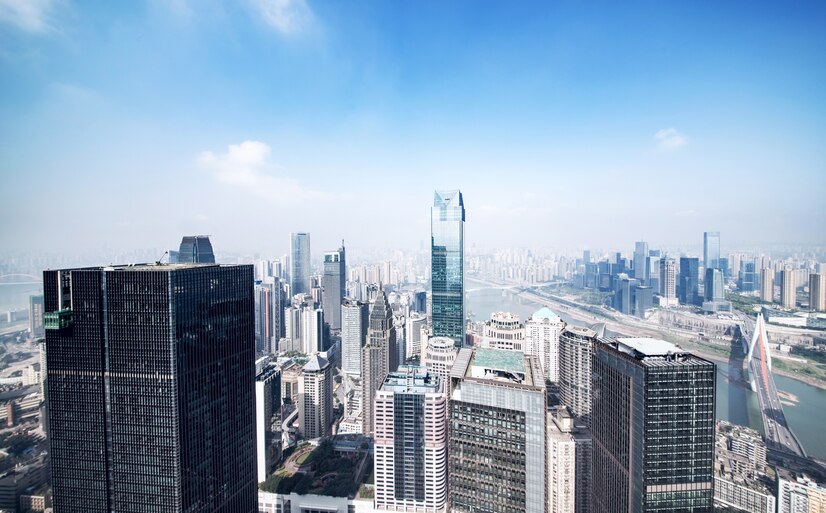
1. What are the best areas to invest in commercial property in Dubai currently?
The best areas to invest in commercial property in Dubai vary depending on the type of property and the purpose of the investment. However, there are some areas that are particularly attractive:
A. Dubai International Financial Centre: An excellent choice for luxury offices and international financial and legal firms.
B. Downtown Dubai: A central area that includes Burj Khalifa and Dubai Mall, suitable for high-end offices and retail.
C. Dubai Marina: Attracts SMEs, restaurants and cafes.
D. Deira: Suitable for traditional shops and small businesses.
E. Jebel Ali: A good choice for warehouses and industrial properties.
F. Dubai South: An emerging area near Al Maktoum International Airport, with opportunities in the logistics and trade sector.
G. Business Bay: Offers a mix of offices and retail in a modern urban environment.
When choosing an area, factors such as accessibility, infrastructure, future development plans and expected tenant demand should be considered.
2. How can I finance the purchase of commercial property in Dubai?
There are several options for financing the purchase of commercial property in Dubai:
A. Self-financing: Using personal or company funds.
B. Bank loans: Local and international banks in Dubai provide loans for commercial properties. Typically, they require a down payment of 30-40% of the property value.
C. Islamic financing: A popular option in Dubai, compliant with Islamic law.
D. Co-investment: Partnering with other investors to share costs and risks.
E. Real Estate Investment Trusts (REITs): Provide an opportunity to invest in commercial properties without having to purchase the entire property.
F. Developer financing: Some developers offer flexible payment plans for projects under construction.
The financing terms should be carefully considered, including interest rates, repayment period, and additional fees.
3. What are the expected returns from investing in commercial properties in Dubai?
Expected returns vary depending on the type of property, its location, and the market conditions. In general:
A. Offices: Annual returns typically range between 5% to 8%.
B. Retail: Returns can be as high as 7% – 10% per annum.
C. Warehouses and industrial properties: Returns can be between 6% – 9%.
D. Hotels and serviced apartments: Returns typically range from 6% – 10%, but can be more volatile.
In addition to rental income, capital gains can be made from the appreciation of the property over time. However, it is important to remember that these figures are estimates and may change depending on market conditions.
4. Can foreigners own commercial properties in Dubai outright?
Yes, foreigners can own commercial properties in Dubai outright, but with some restrictions:
A. Freehold: Foreigners are allowed to own properties outright in designated freehold areas such as Downtown Dubai, Dubai Marina, and the Palm Islands.
B. Usufruct: In some areas, foreigners can obtain usufruct rights for up to 99 years.
C. Long-term lease: In some cases, long-term lease (30-50 years) may be the only option.
D. Free zones: Some free zones in Dubai offer full ownership to foreigners within their borders.
It is important to check the laws specific to each area before purchasing, as regulations may change from time to time.
5. What are the taxes on commercial properties in Dubai?
Dubai is known for its relatively low tax regime, but there are some fees and taxes associated with commercial properties:
A. Value Added Tax (VAT): Charged at 5% on most commercial real estate transactions, including sales and rentals.
B. Registration Fees: When purchasing a property, a registration fee of 4% of the property value is paid to the Dubai Land Department.
C. Transfer Fees: There may be additional fees when transferring ownership, which vary depending on the type and value of the property.
D. Municipality Tax: Charged on commercial tenants at 10% of the annual rental value.
E. Service Charges: Not a tax per se, but an additional cost to consider.
It is important to consult a local accountant or tax advisor for up-to-date and accurate information on tax obligations.
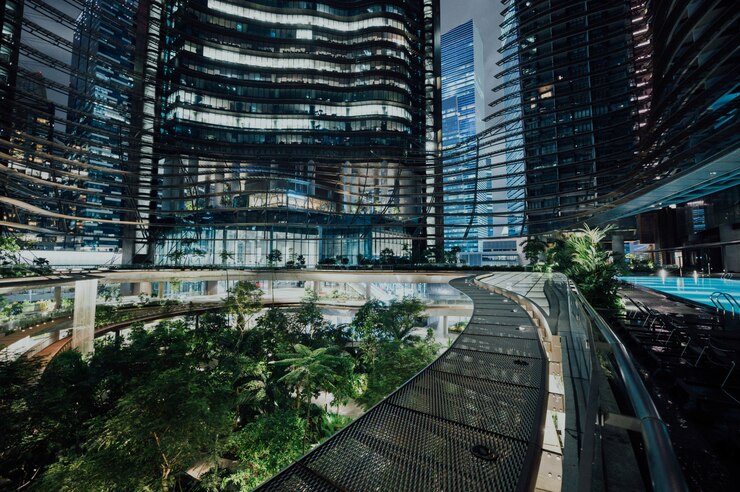
6. How do I assess the feasibility of investing in a particular commercial property in Dubai?
To assess the feasibility of investing in a commercial property in Dubai, the following factors should be considered:
A. Market analysis: Study the real estate market trends in the area in question.
B. Location: Evaluate the quality of the location in terms of accessibility, infrastructure, and future development.
C. Property condition: Evaluate the quality of construction, maintenance status, and need for renovations.
D. Cash flows: Calculate the expected income from rentals and expected expenses.
E. Internal rate of return (IRR): Calculate the expected return on investment over a period of time.
F. Payback period: Estimate the time required to recover the invested capital.
G. Risks: Evaluate potential risks such as market fluctuations or regulatory changes.
H. Future value: Estimate the potential for the property’s value to increase over time.
I. Competition: Study the supply and demand in the area and future projects.
J. Professional advice: It is preferable to seek the help of real estate experts and accountants to conduct a comprehensive assessment.
7. What documents are required to buy a commercial property in Dubai?
To buy a commercial property in Dubai, you will typically need the following documents:
A. Valid passport (for foreign buyers).
B. Emirates ID (for UAE residents).
C. Valid trade license (if buying in the name of a company).
D. Memorandum and Articles of Association of the company (for buying in the name of a company).
E. Board of Directors’ resolution approving the purchase (for companies).
F. Proof of source of funds (bank statements or letters from the bank).
G. Dubai Land Department transfer application form.
H. Sale and purchase agreement signed by the seller and buyer.
I. Certified cheque or bank transfer to pay for the property.
J. Certified cheque for registration fees (4% of the property value).
K. Clearance certificate from the Electricity and Water Company (if the property is used).
L. Power of Attorney (if the purchase is made through an agent).
8. Are there any restrictions on leasing commercial property to foreigners in Dubai?
There are no major restrictions on leasing commercial property to foreigners in Dubai, but there are some important points to consider:
A. Licensing: The tenant must have a valid Dubai commercial license to lease a commercial property.
B. Type of business: The business activity of the company must be consistent with the permitted use of the property.
C. Free zones: There may be special restrictions on leasing property within free zones.
D. Lease term: Commercial leases are usually for one year renewable, but longer terms can be agreed.
E. Registration: Commercial leases must be registered with the Dubai Municipality’s Ejari system.
F. Guarantees: Foreign tenants may be required to provide additional guarantees such as security checks or security deposits.
G. Local sponsor: In some cases, a local sponsor may be required for foreign companies.
9. How can I protect my real estate investment in Dubai?
To protect your real estate investment in Dubai, you can take the following steps:
A. Legal verification: Conduct a comprehensive legal check of the property before purchasing to ensure that it is free of disputes or mortgages.
B. Official registration: Officially register the property in your name with the Dubai Land Department.
C. Insurance: Obtain comprehensive insurance for the property against various risks.
D. Regular maintenance: Keep the property in good condition through periodic maintenance.
E. Professional management: Hire a professional property management company to manage and maintain the property.
F. Legal contracts: Use legal, documented leases to protect your rights as an owner.
G. Legal consultation: Hire a real estate lawyer to review all contracts and documents.
H. Regulatory changes monitoring: Stay informed of changes in real estate laws and regulations.
I. Diversification: Do not put all your investments in one property or one area.
J. Market research: Conduct periodic market studies to understand trends and make informed decisions.
10. What are the maintenance and management costs for commercial properties in Dubai?
The maintenance and management costs for commercial properties in Dubai vary depending on the type, size and location of the property, but generally include:
A. Service charges: These typically range between AED 10 to AED 20 per square foot per year for offices and shops.
B. Building maintenance: These include periodic repairs and improvements, and can be up to 5% of the annual rental value.
C. Insurance: These range between 0.5% to 1% of the property value per year.
D. Property management fees: If a management company is hired, the fees can range between 3% to 5% of the rental income.
E. Taxes and fees: Such as VAT on rents (5%).
F. Electricity and water costs: For common areas in the building.
G. Security and cleaning costs: Especially in large buildings or commercial complexes.
H. Equipment maintenance: Such as elevators and air conditioning systems.
I. Periodic renovations: These may be necessary every few years to maintain the attractiveness of the property.
It is important to budget for these costs when calculating the expected return on investment.
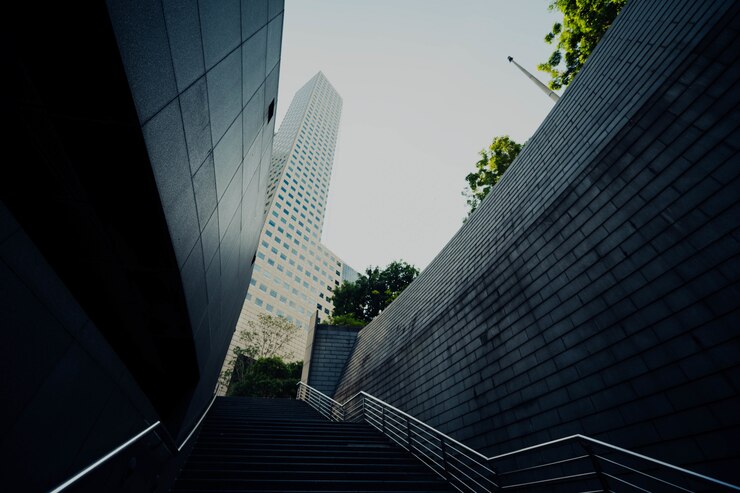
11. Q: What are the most popular areas for commercial real estate in Dubai?
A: Dubai has several attractive areas for commercial real estate, each with its own unique characteristics:
– Dubai International Financial Centre (DIFC): It is a global financial center and attracts major financial and legal companies. It features luxurious office buildings and an independent legal system.
– Downtown Dubai: Home to Burj Khalifa and the Bay Mall, it is an upscale area that attracts luxury companies and global brands.
– Business Bay: A modern business district with many skyscrapers and modern offices, attracting a variety of companies.
– Dubai Marina: An upscale coastal area that combines residential and commercial properties, attracting companies looking for a prime location.
– Jebel Ali Free Zone (JAFZA): It is the largest free zone in the Middle East and attracts industrial and logistics companies.
– Dubai Silicon Oasis: Focuses on technology and innovation companies.
12. Q: What factors affect commercial real estate prices in Dubai?
A: There are several key factors that affect commercial property prices in Dubai:
– Location: This is the most important factor, as prices vary significantly between central and suburban areas.
– Macroeconomic status: Economic growth, inflation rates, and oil prices all affect the real estate market.
– Supply and demand: The balance between supply and demand for real estate plays a major role in determining prices.
– Infrastructure: Major projects such as airport expansion or the construction of new metro lines can increase the value of properties in surrounding areas.
– Government policies: Laws related to foreign investment, taxes, and real estate market regulation affect prices.
– Foreign investment: The influx of foreign capital can increase prices in certain areas.
– Building quality and age: Modern buildings with high specifications are usually more expensive.
– Sustainability: Green and sustainable buildings are becoming more in demand, which affects their prices.
13. Q: Are there restrictions on foreign ownership of commercial properties in Dubai?
A: The laws regarding foreign ownership of commercial property in Dubai vary by area:
– In most free zones such as the Dubai International Financial Centre (DIFC) and Jebel Ali Free Zone (JAFZA), foreigners can own 100% of commercial property.
– In some designated areas outside the free zones, foreigners are allowed to own property outright, such as some areas in Dubailand.
– In non-freehold areas, foreigners may need an Emirati partner or may be limited to long-term leasehold rights (usufruct).
– Foreign companies registered in Dubai can purchase commercial property in certain areas.
– It is important to review current laws before investing, as these laws may change over time to encourage foreign investment.
14. Q: What are the advantages of investing in commercial real estate in Dubai?
A: There are several advantages to investing in commercial real estate in Dubai:
– High rental yields: They can reach 7-10% per annum in some areas, which is attractive compared to other markets.
– Tax exemptions: There are no personal or corporate income taxes in most cases, which increases the attractiveness of the investment.
– Advanced infrastructure: Dubai has a world-class infrastructure, including airports, ports, and transportation networks.
– Strategic location: Dubai is a major commercial hub linking the East and West, making it attractive to global companies.
– Relatively stable market: Despite the fluctuations, the real estate market in Dubai is more stable than some other emerging markets.
– Diversity of opportunities: From offices to warehouses and retail, there is a wide range of investment options.
– Strong government support: The Dubai government is strongly supporting the real estate sector through initiatives and legislation.
15. Q: How has the COVID-19 pandemic affected the commercial real estate market in Dubai?
A: The COVID-19 pandemic has had a significant impact on Dubai’s commercial real estate market:
– Increased demand for flexible office space: As many companies have adopted a hybrid working model, demand for flexible and shared office space has increased.
– Decrease in rental prices: Some areas have seen rental prices fall, especially at the beginning of the pandemic.
– Change in office layout: There has been a greater focus on social distancing and improved ventilation in commercial buildings.
– Increased interest in technology: Demand for smart buildings that support remote working has increased.
– Slowdown in new projects: Some new commercial development projects have been postponed or cancelled.
– Gradual recovery: As restrictions have eased and economic activity has resumed, the market has begun to gradually recover.
– Change in demand sectors: Demand for logistics and data centre space has increased, while demand for traditional retail space has declined.
can we buy commercial properties in dubai?
Yes, you can buy commercial properties in Dubai. Foreign investors can purchase freehold commercial properties in designated areas. It’s a great opportunity, as Dubai offers a thriving business environment and strategic location. Make sure to consult with a real estate expert to navigate the process smoothly.

